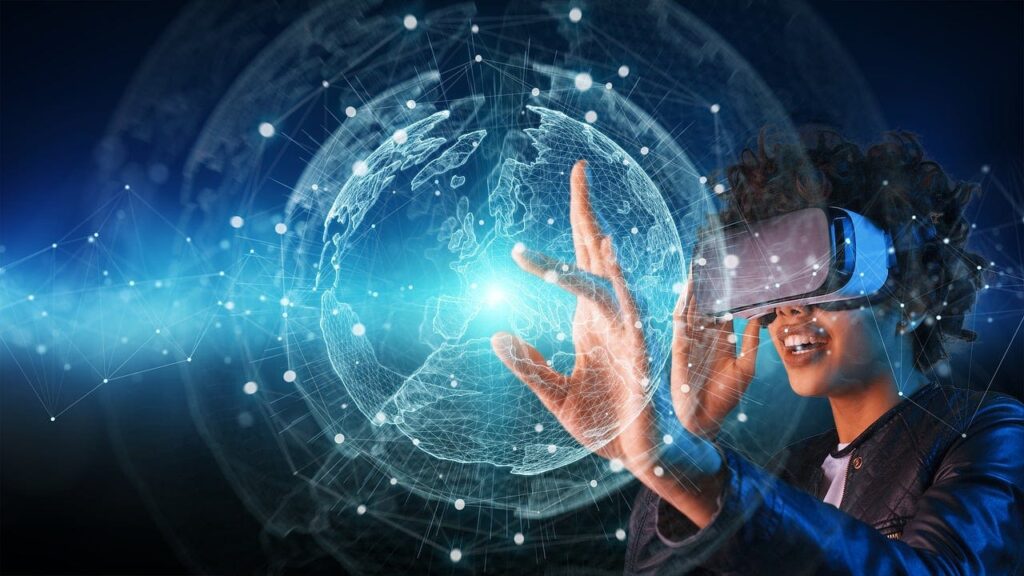Virtual reality (VR) has evolved from science fiction to a tangible technology, poised to revolutionize entertainment, education, healthcare, and more. In entertainment, VR can create immersive experiences, while in education, it can provide hands-on learning. It also has potential in healthcare for therapy and in architecture and design for client previews. Challenges include accessibility and motion sickness, but the future looks promising with technological advancements and increasing adoption. VR has the potential to transform industries and change the way we interact with the world and consume content, creating engaging, immersive experiences previously only seen in science fiction.
The Rise of Virtual Reality
Virtual reality (VR) has come a long way since its inception and is now poised to revolutionize the entertainment industry and beyond. What was once a concept only seen in science fiction movies, virtual reality has now become a tangible technology that is changing the way we experience entertainment and interact with the world.
The Potential of VR
Virtual reality has the potential to transform various industries, including entertainment, education, healthcare, and more. By creating immersive experiences that transport users to different worlds and scenarios, VR has the power to revolutionize the way we learn, train, and entertain ourselves.
Entertainment Industry
One of the most significant impacts of virtual reality is on the entertainment industry. VR has the ability to create immersive experiences for users, whether it’s through virtual tours of famous landmarks, interactive storytelling, or realistic gaming experiences. It opens up new possibilities for content creators and provides audiences with more engaging and memorable experiences.
Education and Training
In the field of education and training, virtual reality can provide a hands-on and interactive learning experience. Whether it’s through virtual field trips, simulations, or training exercises, VR can enhance learning and retention by creating immersive and memorable experiences that traditional methods cannot replicate.
Healthcare and Therapy
Virtual reality also has the potential to improve healthcare and therapy by providing immersive experiences for patients. It can be used for pain management, exposure therapy, and rehabilitation, among other applications, to enhance the overall patient experience and improve outcomes.
Virtual Reality in Architecture and Design
In the field of architecture and design, VR can provide clients with a realistic and immersive preview of a proposed project, allowing them to visualize and experience the space before it is built. This can enhance the communication between designers and clients and improve the overall design process.
Challenges and Considerations
While the potential of virtual reality is vast, there are also challenges and considerations that need to be addressed. These include concerns about accessibility, motion sickness, and the ethical implications of immersive experiences. Additionally, there are technical challenges such as the need for high-quality hardware and software, as well as creating content that harnesses the full potential of VR.
The Future of Virtual Reality
The future of virtual reality looks promising, with continued advancements in technology and increasing adoption across various industries. As hardware becomes more affordable and accessible, and content creators continue to push the boundaries of what is possible in VR, we can expect to see even more innovative and transformative applications of this technology.
Conclusion
Virtual reality has the potential to change the future of entertainment and beyond by creating immersive and engaging experiences that were previously only seen in science fiction. As the technology continues to evolve and expand, we can expect to see virtual reality play a significant role in shaping the way we interact with the world and consume content.
